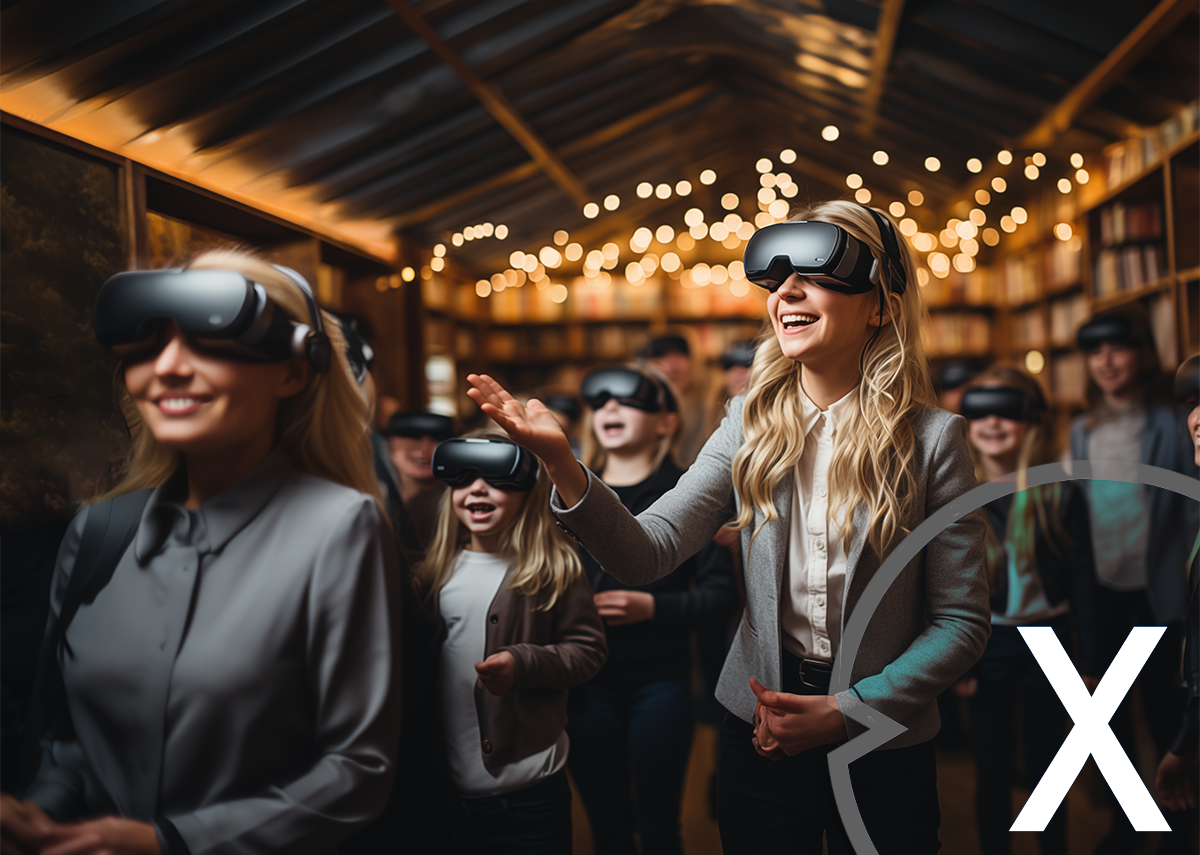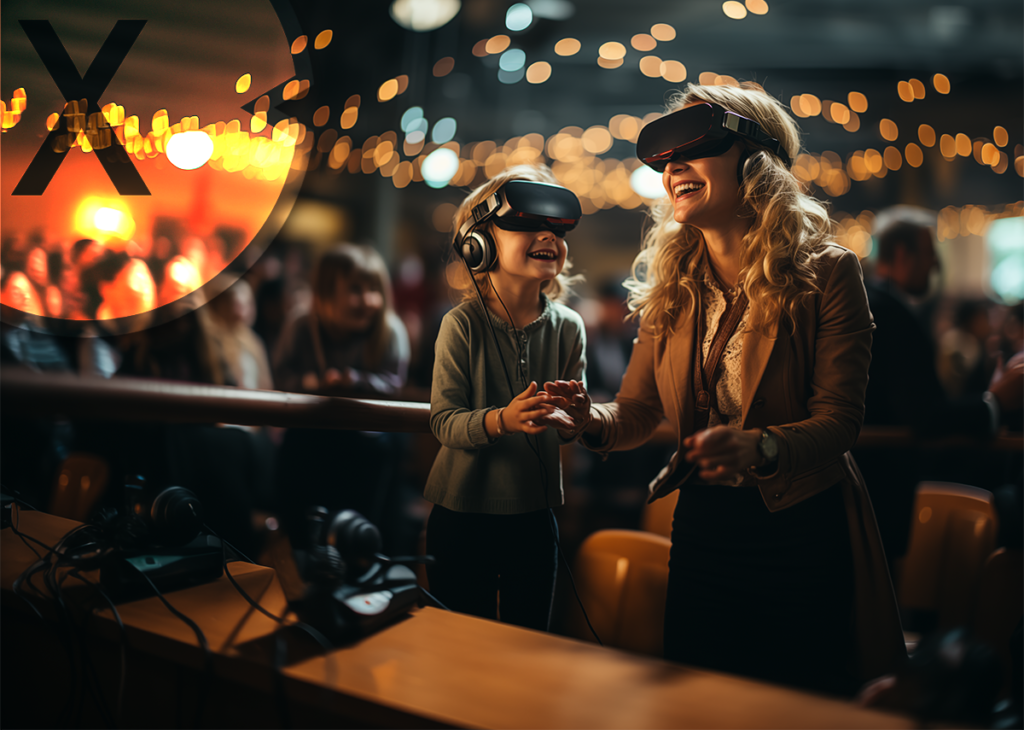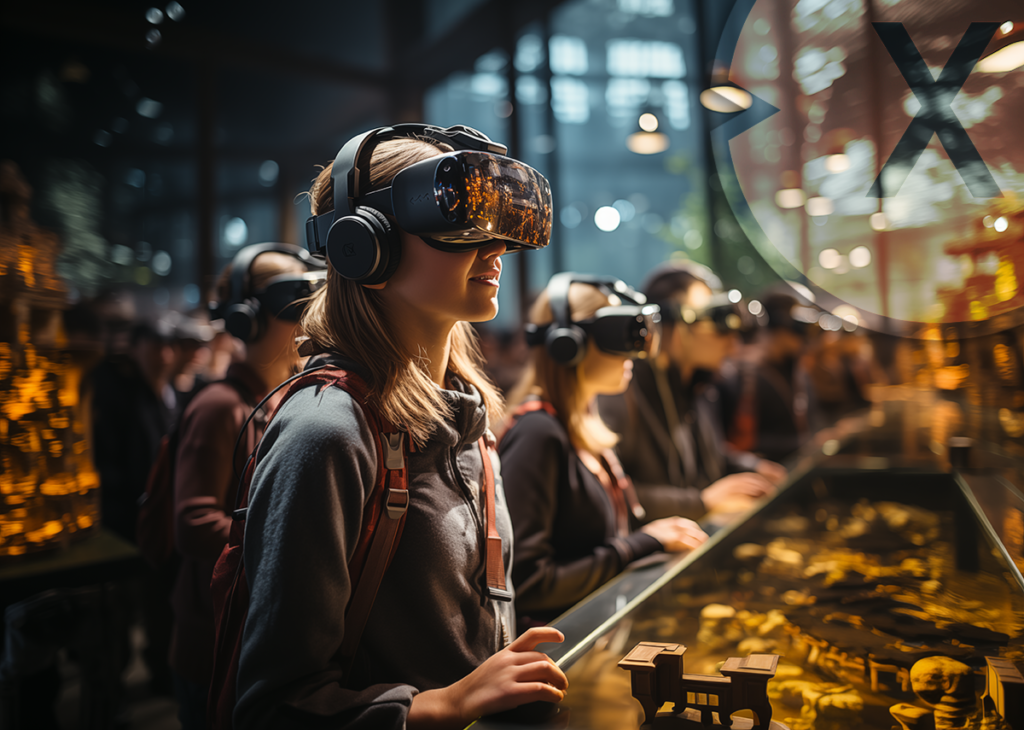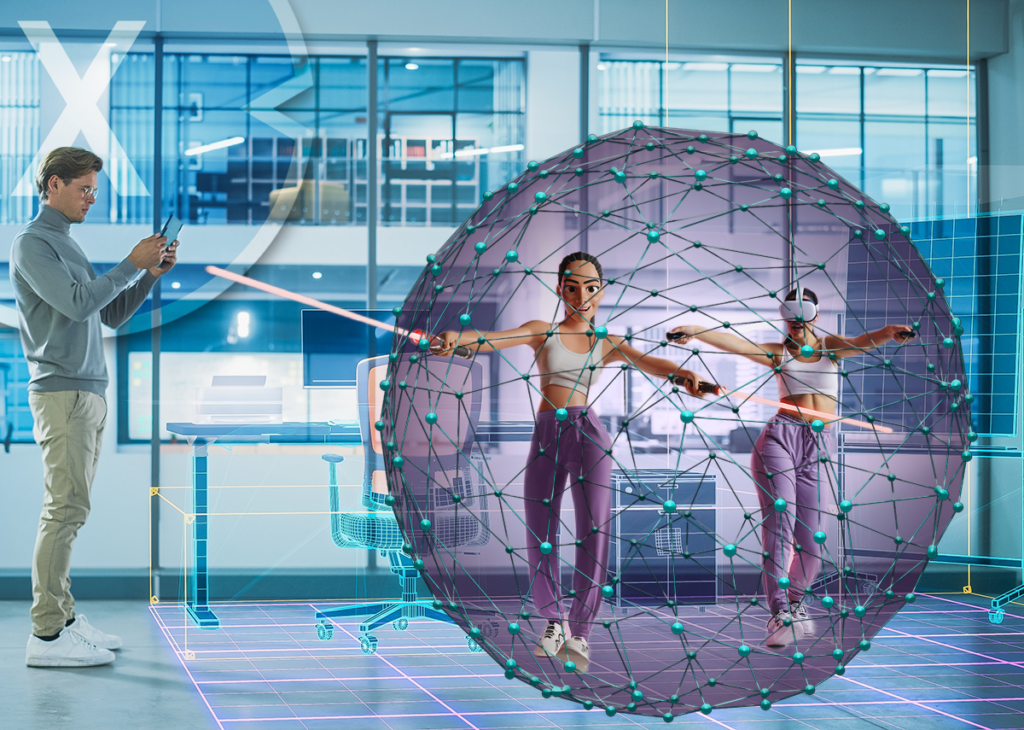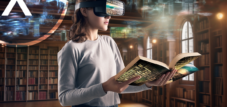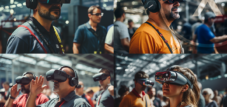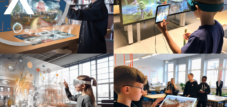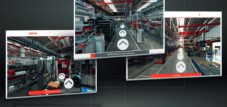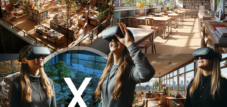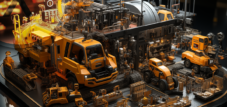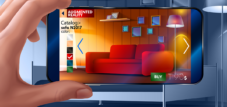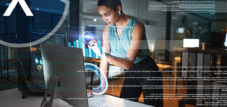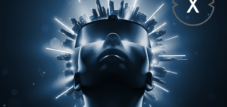Virtual Reality: VR glasses in the classroom – North Rhine-Westphalia shows the way – information & top ten tips for virtual worlds (NRW)
Language selection 📢
Published on: November 12, 2023 / update from: January 11, 2024 - Author: Konrad Wolfenstein
📚 Virtual reality in teacher training: A revolution in the classroom - The power of VR in North Rhine-Westphalia 🌌🕹️
📚 The use of virtual reality (VR) in teacher training in North Rhine-Westphalia represents a progressive development in the education system. After the successful pilot project, it is now planned to test this technology more broadly and integrate it into everyday teaching. Future teachers should work with VR glasses during their training in order to explore and use their potential for interactive and multidimensional teaching.
🔍👩🏫 The experiences from the pilot project “Virtual Reality in Teacher Training” were already promising in 2021. The then school and education minister, Yvonne Gebauer, was impressed by the new possibilities that VR offers for modern and exciting lessons. She emphasized the importance of the multisensory approach enabled by VR, immersing students in virtually created realities.
“Virtual reality offers fascinating new possibilities for exciting and modern teaching that appeals to students with multiple senses at the same time. Teachers can use this technology to implement novel teaching and learning scenarios in which students can immerse themselves in computer-generated realities.”
🏫 The centers for practical school teacher training in Aachen and Münster tested over two years whether VR technologies can improve training by supporting the learning processes and helping prospective teachers to acquire the media skills required in the core curriculum. Not only the educational aspects, but also the technical aspects such as compatibility and user-friendliness of the support were evaluated.
🌐 Various areas of application of VR have already been demonstrated in Aachen in 2021. For example, students were able to gain a 3D insight into how the human heart works or virtually explore the streets of ancient Rome. A complex VR learning environment was specially developed for teacher training, which makes it possible to work together in virtual spaces, for example on repair orders in a simulated engine room or during exchanges in a virtual classroom.
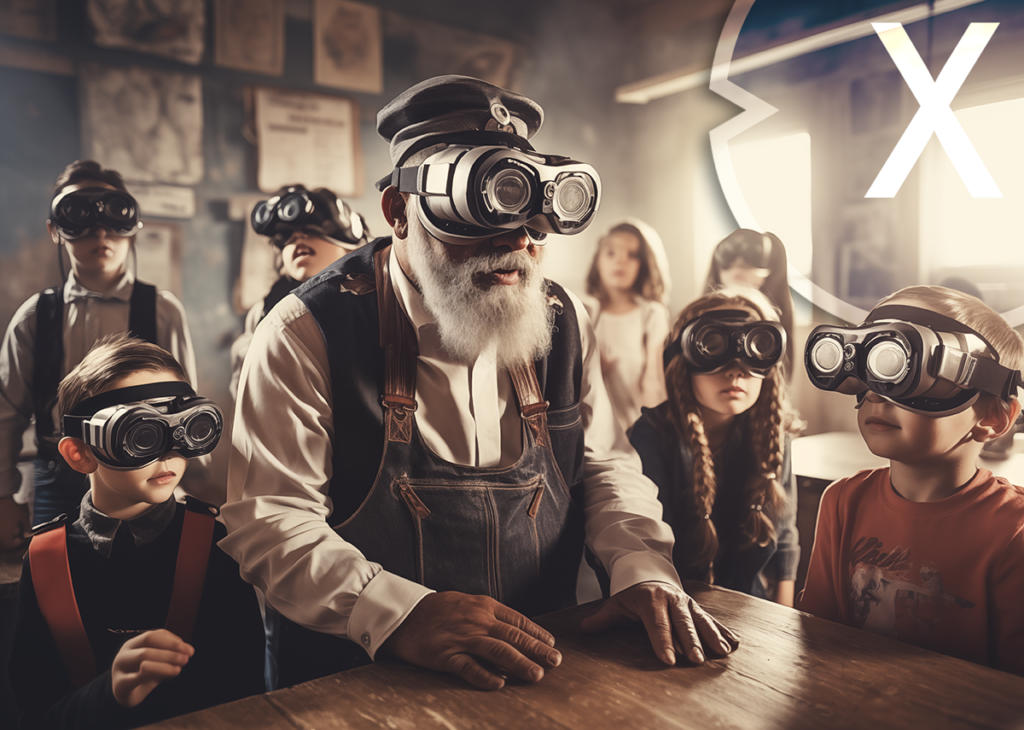
AI & XR-3D-Rendering Machine: With Virtual Reality up close, different times of time 'with and after life'-Image: Xpert.digital
📊 The results of the pilot project were so convincing that it was decided to make them available to all 33 centers for practical school teacher training in North Rhine-Westphalia. VR is seen as an enrichment for teacher training and teaching, particularly in the fields of science, geography and history, where it opens up new didactic and pedagogical possibilities.
💰 The state government had already invested 11.5 million euros in the IT infrastructure in 2021 to equip the school-based teacher training centers for modern training. In addition, up to 300,000 euros were planned at the time to develop individual concepts for VR projects. This follows the state government's goal of leading schools into a digital future and fulfills the promise of a comprehensive equipment offensive.
🎓 The virtual reality project in teacher training is just part of a larger initiative that is intended to sustainably transform teaching and learning with digital media. Teachers are trained in the use of VR to effectively introduce students to this advanced technology and equip them for the digital future.
🌟 These developments mark a turning point in educational technology. The ability to convey complex concepts and historical events through interactive VR experiences opens new horizons for learning. With VR, teachers can bring classroom material to life and motivate students by allowing them to learn through direct experience - an approach that goes far beyond traditional teaching methods. This immersive technology is revolutionizing teacher training and student learning, leading to deeper understanding and increased engagement. It is a crucial step towards an inclusive and innovative educational environment tailored to the needs of today's digital and globalized world.
📣 Similar topics
- 🚀 Revolutionary teacher training with virtual reality
- 🎓 VR technology in education: a new era begins
- 🌐 Virtual Classroom: The Future of Teaching
- 🔍 Explore, learn, inspire: VR in teacher training
- 💡 Innovative teaching methods: VR glasses in use
- 📊 VR in education: successes and potential
- 🌟 The magic of virtual reality in the classroom
- 🔬 VR applications in natural sciences
- 🗺️ Historical journeys in VR: Relive ancient Rome
- 🎯 Pedagogical Transformation: VR and the Future of Learning
#️⃣ Hashtags: #VirtualReality #Teachertraining #Educationtechnology #InnovationinTeaching #DigitalEducation
🏙️ The future of learning: VR technology in the classroom 📚
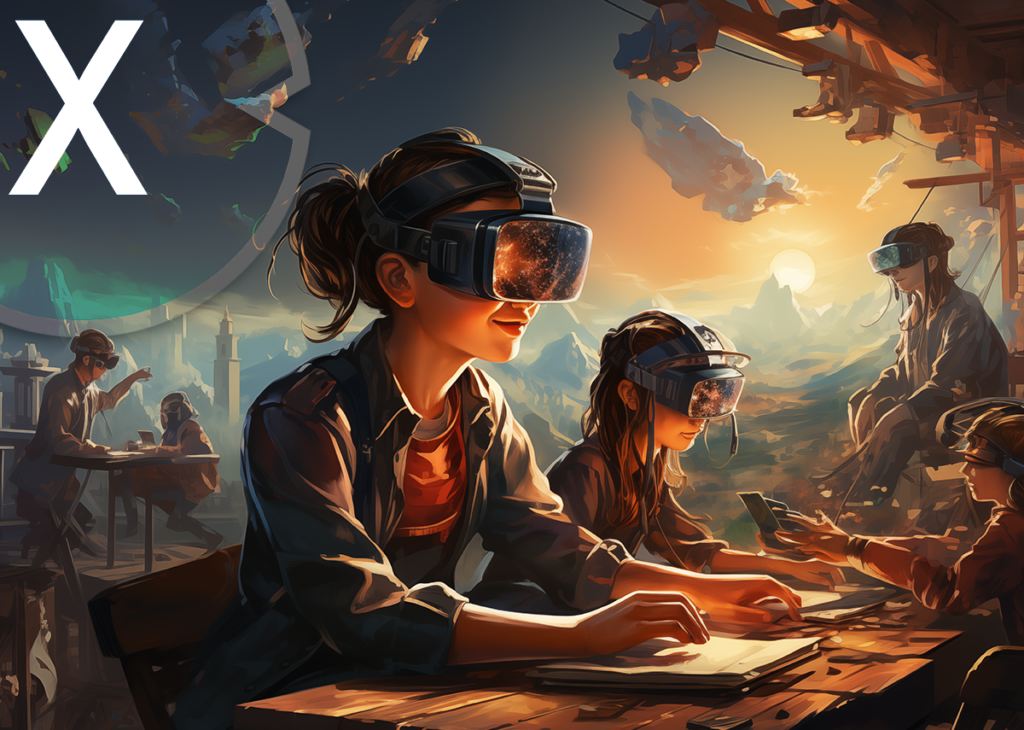
AI & XR 3D Rendering Machine: Virtual Reality – VR for schools and education – Interactive learning in 3D – Image: Xpert.Digital
📚 Virtual Reality (VR) technology has evolved from a futuristic vision to a viable tool in many fields, including education. In 2021, the Ministry of Schools and Education in North Rhine-Westphalia started the development of a virtual reality (VR) application for specialist lessons. It reflects a commitment to providing students with an immersive and interactive learning experience.
🌍 The new VR application, which was specially designed for geography lessons, enables learners to enter virtual environments and to research complex urban development scenarios. These scenarios not only include historical and current aspects of urban landscapes, but also prospective designs of future “smart cities”. It is expected that this immersive technology will revolutionize learning and enrich the cognitive processing of information through direct experience.
“In order to design contemporary lessons, it is important to exploit the potential of new digital possibilities and test innovative concepts for school lessons. The virtual reality application for geography is a great example of showing the diverse opportunities of digital learning materials for subject teaching. In this new learning setting, students can engage with the school material in a more multifaceted and active manner and approach topics from a different perspective.” – Yvonne Gebauer, School and Education Minister (2017-2022)
🌆 The heart of the application is the replica of an ideal city, which was developed in collaboration with the Geomatics AG of the Geographical Institute of the Ruhr University Bochum. This digital city is designed as a three-dimensional model that covers various subject areas such as demographic change, social dynamics, mobility concepts as well as economic and ecological implications of digitalization. Through this VR environment, students can experience the complexity and interconnectedness of urban development processes and sharpen their critical thinking skills by analyzing and reflecting on possible future scenarios.
🔍 The VR application is modular to support a wide range of learning scenarios, adapted to the four main pillars of the smart city concepts: “Smart Mobility”, “Smart Economy”, “Smart Living” and “Smart Environment”. Each module will be designed to integrate both current and future perspectives in order to convey a holistic view of the development of sustainable cities to the students.
🌐 To ensure broad accessibility and flexibility, the VR application can be used both in the web browser and via VR glasses. In addition, an accompanying learning course is provided that enables flexible preparation of the content. This course covers current and relevant topics and is designed to encourage students to conduct their own investigation and analysis.
📊 The development and implementation of the VR learning environment was supported and evaluated by the University of Cologne in close cooperation with the Düsseldorf district government.
🌟 Introducing VR technology into school lessons is an ambitious undertaking that could permanently change the way students learn. Education is breaking new ground by creating virtual learning environments that enable students to grasp complicated concepts in an intuitive and engaging way.
🔗 Yvonne Gebauer emphasized the importance of this development:
“Supporting this virtual reality project is an essential step towards expanding the spectrum of teaching and learning in our digital world and thus creating future-proof learning environments for our students.”
📣 Similar topics
- 🌍 Virtual Reality in Education: Discovering New Horizons
- 🏙️ Urban learning in virtual reality
- 🚀 The future of school teaching: VR in use
- 🔍 Cities in Transition: VR Exploration for Students
- 🌆 Virtual city maps: rethinking education
- 🏫 Digital learning: VR technology in the classroom
- 📊 Experience smart cities up close: VR in geography lessons
- 🧠 Immersive education: VR is revolutionizing learning
- 🏞️ Virtual Excursions: The World of Geography in VR
- 💡 VR for Students: The Future of Teaching
#️⃣ Hashtags: #VirtualReality #Education #VRImLesson #SmartCities #GeographyLessons
📚🌐 Now NRW wants to provide thousands of virtual reality glasses for teachers and students
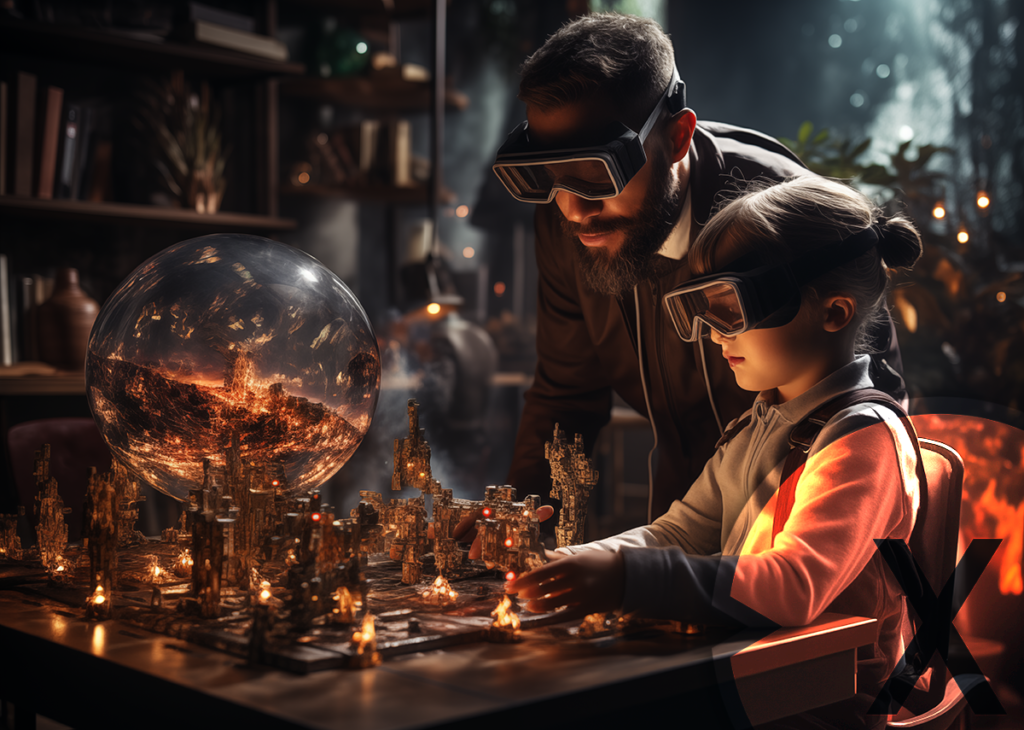
AI & XR 3D Rendering Machine: Pedagogical Potential – Virtual Reality in Schools – Image: Xpert.Digital
📚 North Rhine-Westphalia (NRW) is taking another innovative step towards digital education: providing thousands of virtual reality glasses (VR glasses) for teachers and students. This plan to purchase up to 3,400 VR glasses marks a significant step forward in the integration of modern technologies into the education system.
🏫 According to the North Rhine-Westphalia Ministry of Education, these glasses are intended for the centers for practical school teacher training (ZfsL) and municipal media centers (KMZ). Here they can be borrowed for lessons and used in various teaching situations. This approach allows teachers to explore new teaching methods and provide students with an immersive learning experience.
🌐 Virtual reality technology offers numerous advantages for the education sector. The immersive experience allows students to better understand complex concepts and processes. For example, in biology they can explore the human body in 3D or in geography they can take virtual excursions to distant places. This not only increases student engagement and interest, but also promotes a deeper understanding of the learning content.
👩🏫 Another important aspect is the use of VR in teacher training. Prospective teachers can use VR glasses to simulate teaching situations and test different pedagogical approaches in a controlled environment. This prepares them better for real classroom situations and increases their confidence and competence in dealing with different learning scenarios.
🎓 In addition, the use of VR glasses in schools enables more individual and differentiated teaching. Students with different learning styles and abilities can be better reached and supported through customized VR content. VR can be particularly helpful support for students with learning difficulties or special educational needs.
💻 However, the integration of VR technology in schools also requires appropriate technical equipment and training for teaching staff. Teachers need to be trained in the use of technology to achieve its full potential. It is also important to create suitable framework conditions for the use of VR glasses in the classroom to ensure effective and safe use.
🚀 The purchase of VR glasses by NRW is more than just an investment in new technologies; it is a step towards a more comprehensive and modern education. This development has the potential to fundamentally change and enrich learning and teaching.
- AI & XR 3D Rendering Machine: Children and students explore virtual worlds – Image: Xpert.Digital
- AI & XR 3D Rendering Machine: Education 2.0 – VR applications in the modern classroom – Image: Xpert.Digital
🔍 The NRW initiative represents an exciting experiment that explores the possibilities of using virtual reality in the education sector. It shows that the state of North Rhine-Westphalia is ready to break new ground and seek innovative solutions to improve the quality of education and equip students and teachers for the challenges of the 21st century.
📣 Similar topics
- 🌟 Innovative education with virtual reality
- 👓 VR glasses for teachers and students in NRW
- 🏫 Digital revolution in the classroom
- 🎮 Learning in 3D: VR glasses for education
- 🔍 Enhanced learning experience with VR technology
- 👩🏫 Pedagogical revolution: VR in teacher training
- 💡 New ways of teaching: VR in the classroom
- 🧩 Differentiated learning with VR glasses
- 🔧 Technical equipment for VR in schools
- 🚀 NRW's vision for education: VR glasses for everyone
#️⃣ Hashtags: #InnovativeEducation #VRGlasses #DigitalRevolution #PedagogicalRevolution #DifferentiatedLearning
📚 Virtual Reality: VR glasses in the classroom - information & top ten tips for virtual worlds
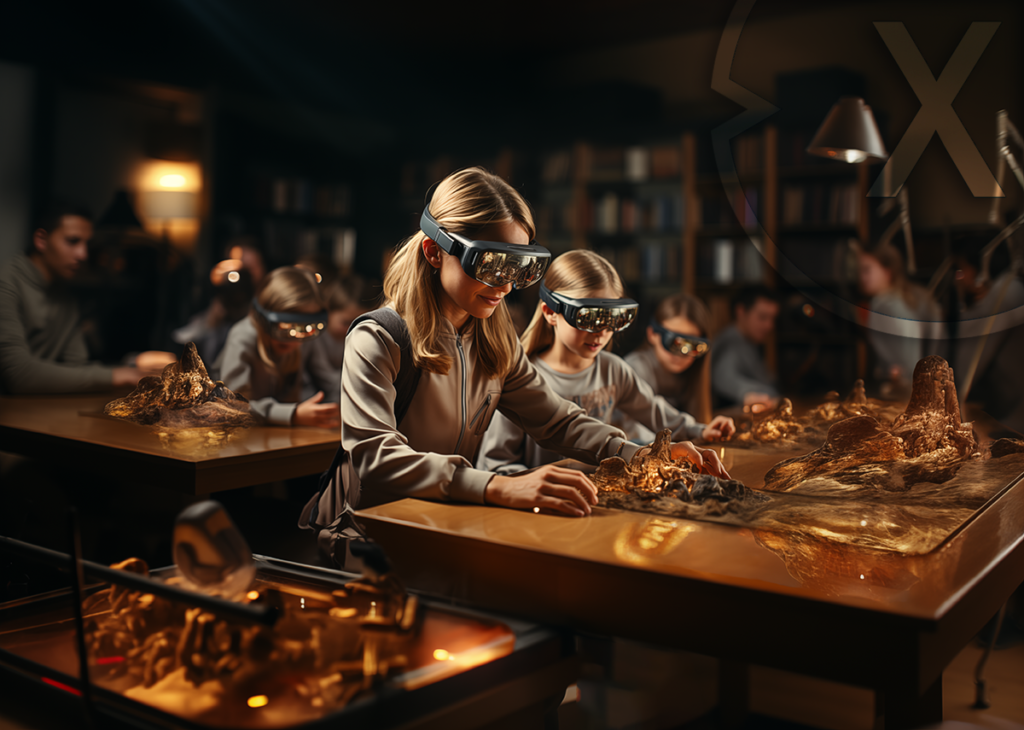
AI & XR 3D Rendering Machine: Innovative Education – How Virtual Reality is changing teaching – Image: Xpert.Digital
Using virtual reality (VR) glasses in the classroom opens up exciting new possibilities for teaching. With VR glasses, students can immerse themselves in fascinating virtual worlds and enjoy an interactive learning experience. In this article, we will explain everything you need to know about VR in education and give you ten important tips on how to successfully use VR in the classroom.
🌍 What is Virtual Reality?
Virtual reality is a computer-generated environment that allows users to immerse themselves in and interact with a simulated world. With VR glasses worn on the head, users can see the virtual world and move freely within it. The VR glasses capture head movements and adjust the virtual environment accordingly to create an immersive experience.
🎓 VR glasses in education
The use of VR glasses in the classroom opens up whole new dimensions of learning. Students can experience historical events up close, dive into the depths of the ocean, or explore distant lands without leaving the classroom. The immersive experience brings learning content to life and allows students to better understand complex concepts.
VR also offers benefits for teacher training. Teachers can use VR glasses to simulate teaching situations and test different pedagogical approaches. This means they are better prepared for real classroom situations and can optimize their teaching methods.
🔝 Top ten (and more) tips for using VR in the classroom
📚 1. Choose suitable VR glasses
There are different types of VR glasses on the market. Choose glasses that meet your needs and are suitable for school use.
🏫 2. Make sure the classroom has enough space
VR requires freedom of movement. Make sure there is enough space in the classroom to move freely.
🔎 3. Select appropriate VR content
There is a wide variety of VR content for education. Select content that fits the learning objectives and content.
🎓 4. Prepare students
Give students an introduction to VR technology and explain to them how to use the VR glasses correctly.
🤝 5. Provide support during the VR experience
As students explore the virtual worlds, ensure they receive support and can overcome any difficulties they may have.
📅 6. Integrate VR into the lesson plan
Plan the use of VR into the lesson plan and ensure that sufficient time is allocated for the VR experience.
👥 7. Enable collaborative learning
VR can also be used for collaborative learning. Students can work on projects together and share their experiences.
💡 8. Reflect on the VR experience
After students experience VR, take time to reflect together and discuss lessons learned.
📚 9. Use additional materials
Supplement the VR experience with other materials such as books, worksheets or discussions to deepen learning.
🚀 10. Stay on top of the latest technology
VR is constantly evolving. Stay informed about new developments and use regular updates to make the most of VR’s potential.
📚 11. Involve parents
Educate parents about the use of VR in the classroom and let them participate in the process to promote support and understanding.
🎯 12. Set clear learning goals
Define clear learning objectives for using VR and ensure they align with the curriculum.
👩🔬 13. Encourage experiential learning
Use VR to encourage students to engage in experiential learning and discover new concepts in innovative ways.
📝 14. Encourage interaction
Use interactive elements in the VR content to encourage students to actively participate and collaborate.
🌍 15. Expand your horizons
Use VR to introduce students to new places and cultures and broaden their perspective.
🧠 16. Encourage critical thinking
Ask students targeted questions during the VR experience to develop their critical thinking and problem-solving skills.
🔄 17. Evaluate progress
Regularly check student progress using VR and adjust lessons accordingly.
💻 18. Use online resources
Explore online platforms and resources to find VR content and connect with other educators.
🔊 19. Celebrate successes
Recognize students' progress and successes using VR to increase their motivation and engagement.
🙌 20. Stay flexible
Tailor your use of VR to your students' needs and be prepared to make adjustments to ensure an optimal learning experience.
🌍 Unique learning experience
VR glasses offer an exciting way to enrich lessons and offer students a unique learning experience. With the right tips and careful planning, teachers can successfully use VR in the classroom and increase their students' learning success.
Whether it's visiting distant lands, exploring the human body or historical time travel - VR opens up fascinating possibilities that bring learning to life. Use the potential of VR in the classroom and immerse yourself in virtual worlds!
📣 Similar topics
- 🌐 Digitalization of the education system: The role of technology in the classroom
- 🏫 Virtual learning: How VR glasses are revolutionizing teaching
- 📚 Immersive Education: The Potential of Virtual Reality in Schooling
- 🎓 Teacher training of the future: VR glasses as innovative learning tools
- 🔍 Virtual Reality in Pedagogy: Challenges and Opportunities
- 🔬 Immerse yourself in science: VR glasses and exploring the invisible
- 🌍 Virtual trips: Learning through virtual excursions and cultural exchanges
- 💡 Innovative learning methods: VR glasses as a creative tool for engaging lessons
- 🧠 Learning process rethought: How VR glasses promote students' understanding
- 📊 Effectiveness of VR in Education: Research Overview and Case Studies
#️⃣Hashtags: #VRimBildung #DigitaleBildung #NeueLearningwelten #VRGlassesInTheClassroom #InnovativeTeachingmethods
🗒️ Xpert.Digital: A pioneer in the field of extended and augmented reality
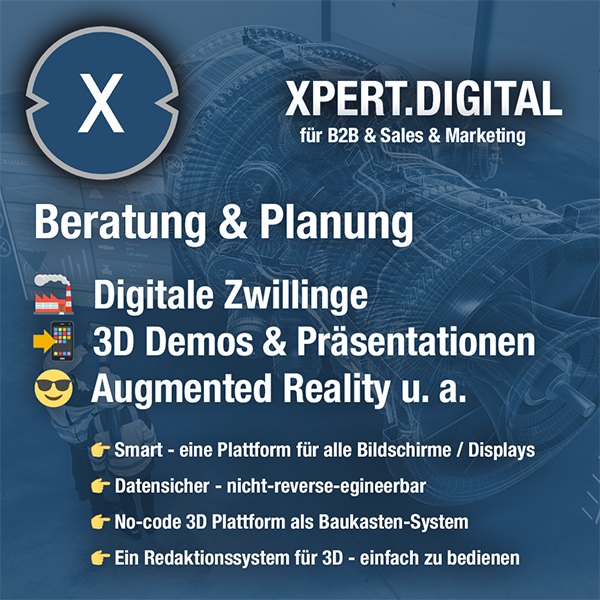
Industrial & B2B Business Metaverse: Reduce costs with XR technology for photorealistic product images (XR 3D rendering machine)
XR technology offers a superior solution for creating photorealistic images and allows companies to free themselves from the expensive fees of external media agencies. It is common knowledge that media agencies charge high costs to create such images as it requires expertise, special software and collaboration with various experts.
More about it here:
We are there for you - advice - planning - implementation - project management
Xpert.Digital - Pioneer Business Development
Smart Glasses & KI - XR/AR/VR/MR industry expert
Consumer metaverse or meta -verse in general
If you have any questions, further information and advice, please feel free to contact me at any time.
I would be happy to serve as your personal advisor.
You can contact me by filling out the contact form below or simply call me on +49 89 89 674 804 (Munich) .
I'm looking forward to our joint project.
Xpert.Digital - Konrad Wolfenstein
Xpert.Digital is a hub for industry with a focus on digitalization, mechanical engineering, logistics/intralogistics and photovoltaics.
With our 360° business development solution, we support well-known companies from new business to after sales.
Market intelligence, smarketing, marketing automation, content development, PR, mail campaigns, personalized social media and lead nurturing are part of our digital tools.
You can find out more at: www.xpert.digital - www.xpert.solar - www.xpert.plus



